When Things Look Dark, Reach For a Higher Perspective: Savannah Guthrie & John Tesh
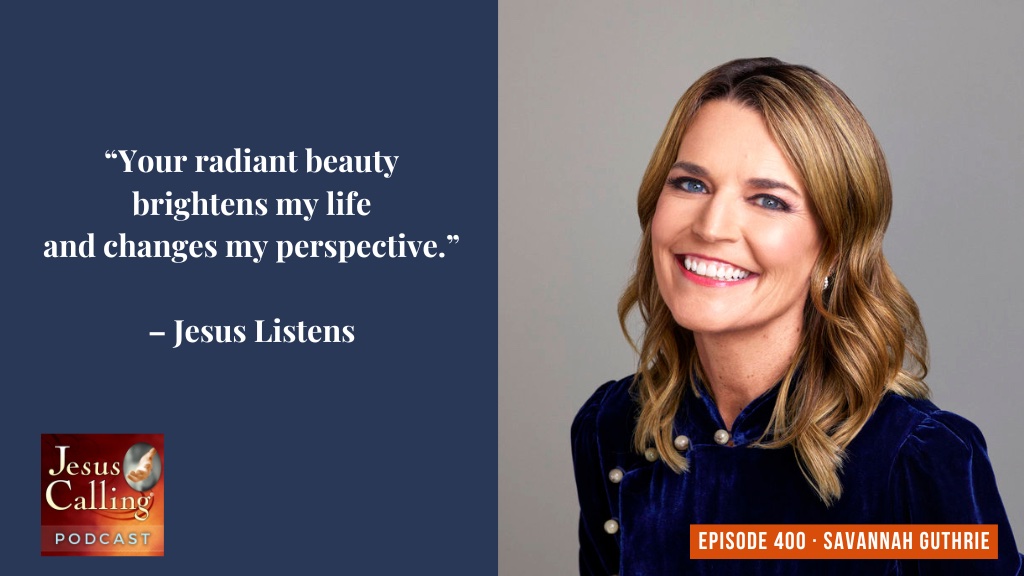
Savannah Guthrie: When you get really discouraged about the world and the state of the world, for me that really indicates that you could benefit from a different perspective and a higher perspective, and that’s why my faith is so important to me.
When Things Look Dark, Reach For a Higher Perspective: Savannah Guthrie & John Tesh – Episode #400
Narrator: Welcome to the Jesus Calling Podcast. Sometimes, our dreams seem so far-fetched that even we don’t believe we’ll ever achieve them. But in Romans 12:2, it says “Do not conform to the pattern of this world, but be transformed by the renewing of your mind.” When we train ourselves to look for the good, to see God’s opportunities around every corner, we’ll find that the life of our dreams isn’t so far away after all.
As we celebrate our 400th episode of the Jesus Calling Podcast, we’ll hear from Savannah Guthrie and John Tesh, who both had unconventional and unexpected breakthroughs into television. Savannah, co-anchor of the Today Show on NBC, shares how her greatest dream of being in journalism came only when she made peace with leaving it behind. Musician and former host of Entertainment Tonight John Tesh shares about the challenging road to his career in television; including being expelled from college to living in a tent, wondering if he’d ever have a career in any kind of media. Until one night, during a desperate prayer to God, he got the answers he was looking for.
Let’s begin with Savannah’s story.
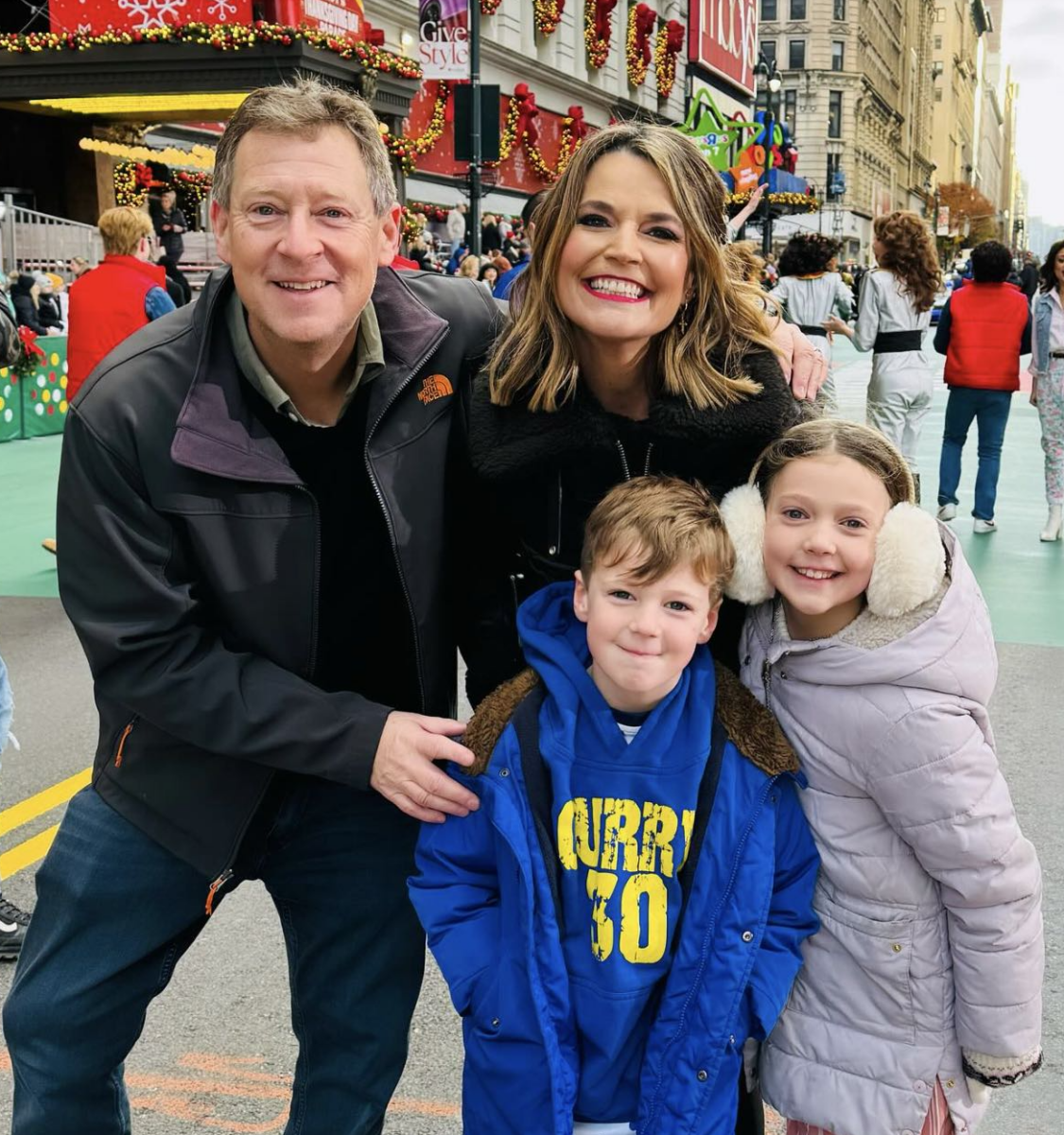
Savannah Guthrie: Hi, my name is Savannah Guthrie and I live in New York City. I’m the anchor of the Today Show on NBC. I’m a mom. I have two kids, ages nine and seven, a girl and a boy, and I’m married to Michael Feldman, and we live in Brooklyn.
I grew up in Tucson, Arizona. I actually was born in Melbourne, Australia, and we lived there for a few years, but I have no memory of it. So we moved to Arizona when I was about four or five, and that’s where my childhood memories really began. My mom was a stay at home mom and my father was in the mining business, but he worked from home. He worked from home before it was a thing. And so I was around my parents a lot as a little girl.
My parents both were raised in the church. My father was a Protestant from southeastern Kentucky. My mom was a Catholic from northern Kentucky, but by the time they had kids and were married, I think both of them had kind of left the church and were not in any organized religion. But at some point, when I was probably about five or so, they decided they better start going to church so their kids had some kind of religious upbringing. And one of my earliest memories is actually seeing my parents be baptized at the front of the church when I was probably about five or six years old. After that, we went to church all the time. We went Wednesday night, Sunday morning Bible study or Sunday school. Then we had services. Then we’d come back in the afternoon for choir practice and Sunday evening services. So we were all in for a time there. My sister says God was the sixth member of our family, and she’s a writer, so of course she has the best lines, but it’s true. God was very much a part of our family, and I was raised that way, and I almost don’t remember a time where I wasn’t aware of and kind of having my own conversation with God in my mind and in my heart.
The Loss of a Father and The Strength of a Mom
My dad passed away when I was sixteen years old. My dad was just forty-nine years old. My mom was forty-six. When I think about that, I’m fifty-two now, I just can’t believe all that she had to contend with. She had been a stay at home mom. She’d never worked outside the home. Suddenly, she’s got these three kids, her husband died, she had to go back to work. At some point pretty early on after my father passed away, my mom’s mother came to live with us and my mom’s brother, who had Down Syndrome. And so she was just this incredible caretaker thrust into this situation where she had to take care of her kids who were growing. And so when I think about what my mom went through, the stress and the fear, I can’t even imagine. Your life is kind of divided into, at that point, between what was before and what came after and we did the best we could.
I always say this about my mom, she’s truthful. She’s straightforward, she’s a truth teller. So if she believed that I could do something and thought it was the right step to take or a good risk to take, that gave me a ton of confidence, because I knew that they weren’t idle words. She had no problem telling me the truth when she thought I was way off, or doing something wrong, or reaching too far or too high. So when she did say, “Well, why not? Sure, go for it. Yeah, you can do that.” It was incredibly empowering because I believed her. She had ultimate credibility.
Savannah’s Biggest Dream Came By Leaving It
I was a pretty decent student as an elementary kid, but as I got older into my teen years, I was a pretty low energy, low motivated student. I was kind of a slacker in high school and ditched class and hung out and was always getting grounded for smoking or staying out past curfew or something. I just wasn’t highly motivated, and I didn’t have some great vision for myself as a young person. When I got to college, I kind of drifted around for a little while, but about halfway through, I discovered journalism. I love to write and I love to speak.
I started working at the local public television station just as a part time job, and by the time I was graduating from college, having worked at this PBS station for several years, I had talked the producers into letting me do a story, and I started to do little things on air here and there, like those PBS fundraising drives on a Sunday morning at 6 a.m., they’d let me host them, and that was my first taste of live television.
So I got out of college and sent tapes all around the country and landed my first job in a tiny, tiny little newsroom in Butte, Montana, which is one of the smallest television markets in the country. And I had never lived away from home, packed everything into the back of my car, and drove up to start my big journalism career, and then two weeks later, they closed the station. So it was kind of a short-lived career launch.
I almost gave up right then and there, almost just said, “Maybe this dream is kind of silly and I should just go get a “normal” job and get on with it.” But I sent a few more tapes when I got home and ended up landing a job in another small town in Columbia, Missouri. And I worked there for two years, and then I was kind of on my way in terms of local news.
I worked in local news for about five or six years, including back in my hometown of Tucson, Arizona, where I was anchoring the weekend news and reporting three days a week.
And at some point, I just started to wonder if it was really for me. Partly, I knew that it was time to move on and try to get into that bigger television market in a big city, and I was nervous that I wasn’t good enough, and so I dreaded the whole process of having to send out those audition tapes again and be rejected time and time again.
I didn’t have much belief that I could get a job like that, and yet I knew it was time to try or leave. And then I had been covering a lot of trials and legal cases and politics and got very interested in Washington and public affairs. So I decided before my contract even ran out on my job in the local news station, I decided to take the LSAT, a law school entrance exam, just on a whim, just to have it in my back pocket in case I couldn’t get another job. I could always apply to law school.
And I wasn’t really done with TV, and that dream was still percolating inside me. And I can’t say that I suppressed it, but I just went a different way, and I decided to move across the country and go to law school. So it’s interesting, my path to network news and my path to national news and what really ends up being my biggest dream of all came by leaving it for a time, and going off to law school, and then practicing law for a short time.
After I practiced a few years, I ended up deciding, I’ve got to go back. I’ve got to go for this. This dream is still within me. So I started working at Court TV, which is a legal network covering trials all across the country, and they wanted someone who was a lawyer but also had on-air experience, so it was the perfect job for me. And through that and covering big legal cases and starting to appear as a legal analyst on different networks, including NBC and the Today Show, that’s how NBC became aware of me and ended up after many, many years in 2007 offering me a job.
Fix Your Gaze on Where Your Hope Comes From

At the Today Show, we have something called the overnight note, and it is an email. It’s a document, and it has all of the headlines anywhere around the world for the last twenty-four hours and it is a staggeringly depressing document. It’s like everything terrible everywhere, all at once. And the reason we do it is so that the producers and the anchors who have been sleeping, hopefully, will be up to date when they wake up on everything that is happened overnight and can make decisions about what should go into the show. But waking up with that every day is a lot. It is really heavy and I asked myself, How do you hold onto hope when that overnight note—which is so disturbing and upsetting—could easily be twenty-five pages instead of five, and how do you hold on to hope?
One of the things that Hoda Kotb and I talk about all the time on the Today Show is looking for the light. And that doesn’t mean sugarcoating or ignoring the very real problems that the world has. In fact, the early parts of our show are a pretty good indicator of exactly that, but we are looking for the light, and we are looking for sources of inspiration and places where we can show that humanity is more good than bad, where love does still win, where forgiveness happens, and mercy and forbearance. Those are the qualities that we are attracted to and want to share.
When you get really discouraged about the world and the state of the world, for me that really indicates that you could benefit from a different perspective and a higher perspective. And that’s why my faith is so important to me.
“When you get really discouraged about the world and the state of the world, for me that really indicates that you could benefit from a different perspective and a higher perspective. And that’s why my faith is so important to me.” – Savannah Guthrie
I’m a big, big, big, big fan of Jesus Calling. I read it pretty much every day. What I like about Jesus Calling is that it isn’t just happy talk. These aren’t just bumper sticker slogans or aphorisms to make you feel a little better about your day, but they’re surface deep. They’re all really rooted in Scripture and rooted in tenets that we can believe—or sometimes don’t want to believe or resist or have a hard time accepting—but they’re there and the essays in Jesus Calling really spring forth from that.
When I’m nervous about a big interview,—which is almost always—and I’m stressed out, I always pray of course. I pray for protection. I pray that things will go okay, but I also do a prayer that is directed internally, where I pray that I’m sincere and that what I’m trying to accomplish from the interview has to do with the people that are listening, the viewers eliciting information, revealing something that was before unseen, and not about trying to score points or do something that I think will make me look good or look tough or something like that.
And if you’re doing it in pursuit of truth or something revelatory on behalf of the people that are listening or watching, then your heart is in the right place. Your motive is in the right place. In this business, we cover so many sad stories and you don’t want to get a thick skin. I don’t want to get a thick skin. I don’t ever want my heart to be hard and cold toward the suffering that we sometimes talk about or witness firsthand. It’s okay to show that you have a heart and that you care.
“In this business, we cover so many sad stories and you don’t want to get a thick skin. I don’t want to get a thick skin. I don’t ever want my heart to be hard and cold toward the suffering that we sometimes talk about or witness firsthand. It’s okay to show that you have a heart and that you care.” – Savannah Guthrie
I think of this verse often: “I look to the hills. Where does my help come from? It comes from the Lord, the Maker of heaven and earth. [Psalm 121:1-2]” And I really focus on the first part of that, “I look to the hills.” When we are consumed by the grief of the world, our own griefs, we are usually looking inward, and sometimes we need to look up and out for help, for help coming on the horizon, for perspective, for sunshine, for a belief that not only is help on the way, but help is coming from God Himself, who is all-powerful and all-seeing and has a perspective that I cannot possibly have as a human being. We need that. We need that, we need hope. I’m here for hope.
“When we are consumed by the grief of the world, our own griefs, we are usually looking inward, and sometimes we need to look up and out for help, for help coming on the horizon, for perspective, for sunshine, for a belief that not only is help on the way, but help is coming from God Himself, who is all-powerful and all-seeing and has a perspective that I cannot possibly have as a human being.” – Savannah Guthrie
Jesus Listens, December 28th:
Delightful Lord,
I love listening to the song that You continually sing to me: “I take great delight in you; I renew you by My Love; I shout for Joy over you.” The voices of this world are a cacophony of chaos, pulling me this way and that. Help me not to listen to those voices but to challenge them with Your Word. Show me how to take breaks from the noise of the world—finding a place to be still in Your Presence so I can hear Your voice.
Having a seeking heart opens me up to receive more of You. The Bible gives me clear instructions: Keep on asking and it will be given to you; keep on seeking and you will find; keep on knocking and the door will be opened to you.
In Your generous Name, Jesus,
Amen
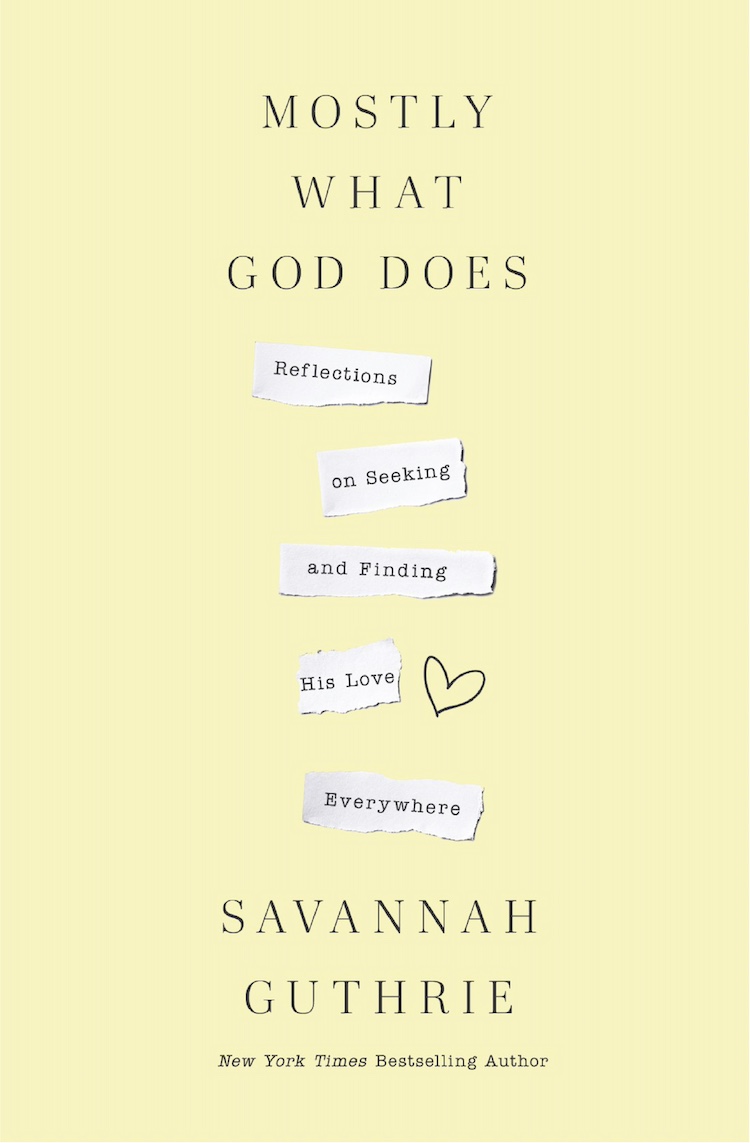
Narrator: You can find Savannah’s new book, Mostly What God Does: Reflections on Seeking and Finding His Love Everywhere, wherever you buy books.
Stay tuned to John Tesh’s story after a brief message.
Give the Gift Of The Bible
It goes without saying, but the Bible has changed so many lives. Take a second to think about if you didn’t have access to a Bible or the freedom to own one. This is a reality that many are facing. That’s why I want to tell you about one of our partners, Cru [Campus Crusade for Christ]. Cru has missionaries in almost every country, and they’re seeing people come to know Jesus.
There’s just one thing they’re missing: a Bible in their own language. One missionary said, “I’ve never seen such a thirst for the Word of God in my country.”

For only $24 a month, you can provide three people with Bibles each and every month. When you sign up to provide three Bibles with a monthly gift of $24, as a thank you, Cru will provide meals to 12 hungry individuals through their humanitarian aid ministry. Plus, you’ll receive a free copy of our Jesus Listens devotional. Simply text “Calling” to 71326 to help today.
Imagine just how much this gift could change someone’s life. So text “Calling” to 71326 to help now or visit www.give.cru.org. Messaging and data rates may apply. Available to U.S. Addresses only.
Celebrate Easter with Jesus Calling
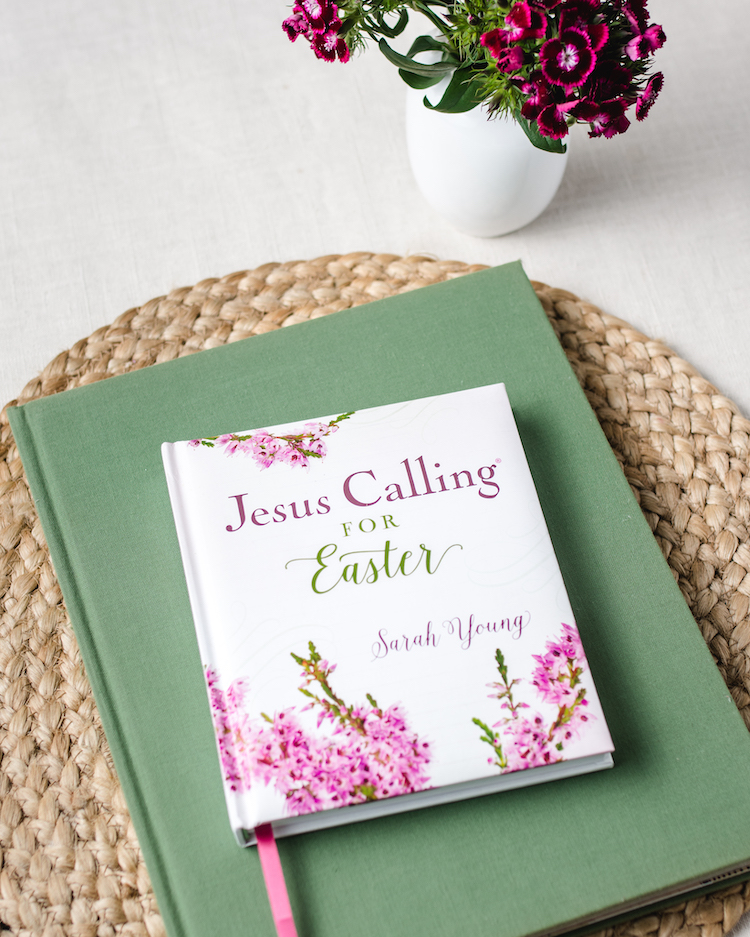
Experience the hope of the resurrection with Jesus Calling for Easter. This book offers 50 seasonally-themed devotions from Sarah Young’s New York Times bestseller Jesus Calling. Inside, you’ll find resurrection truths, hope for the new season, joyous reasons to celebrate, and full Scripture verses.
Get your copy to create a daily reflection of hope throughout the Easter season. Jesus Calling for Easter also makes a wonderful gift to be cherished for years to come.
Our next guest is Josh Tesh, formerly with the popular TV Show Entertainment Tonight, where he became a beloved fixture on weeknight television for over ten years, winning eight Emmy Awards. John is also an accomplished musician, with two Grammy nominations and four gold records. John shares his moving journey of turning to God for help when he had nothing else left, and the message he received in return that would drive him toward new beginnings.
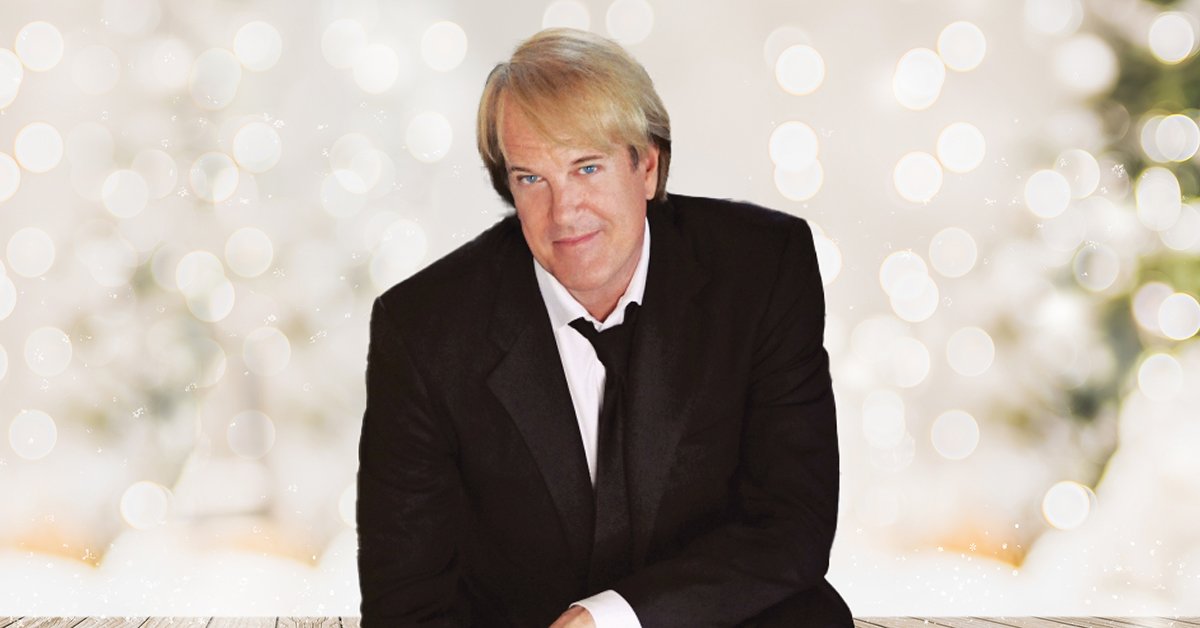
John Tesh: My name is John Tesh. I guess you could say that I’m a presenter and also a musician. At seventy-one years old, I haven’t completely decided what to lead with, but all of it’s a lot of fun.
I was born in 1952, and my mom was a retired surgical nurse. And she was a taskmaster for us three kids. We all played instruments. At six years old, she had me practicing piano for at least two hours a day, and I had a couple of teachers that lived locally from the Juilliard School that were training me on piano. My dad was a World War II veteran, he was a chief petty officer. It was a crazy life growing up on Long Island. My dad worked in New York City. And everybody back then was in a garage band. I mean, even if you played the recorder, on Saturdays and Sundays, you were in the garage with the drummer and the garage door was up and the whole neighborhood had to hear you playing music horribly. These were the days with The Dave Clark Five and The Beatles.
Dreams Of Music Diverted
But when it came time to go searching for colleges, I thought I was going to be a theater major. I would go to a music school. But my dad, he thought, Okay, that’s a cute little thing, but you need something to support yourself. And so he actually enrolled me at North Carolina State University in textile chemistry. So I said, “Well, okay, a father knows best.” And so I went from Long Island to Raleigh, North Carolina.
I was enrolled as a freshman, and I just did not thrive. My GPA hovered around a 1.9. And then a friend of mine said, “Hey, listen, Tesh, I’m enrolling in Television Radio 101, and I think it would be great for you.” And so, I did, I got in the class with him. Within two hours of being in that class, I knew that’s what I wanted to do. And five hours later, I started going to my professors to drop out of all my science and math courses. And most of my professors—even though it passed the add/drop date—they all said, “Yeah, fine. We don’t want you in our class anyway”… I was killing their average. But when I got to my statistics professor, he just held the line. He said, “John, we are past the date for add/drop and it’s against university policy.” I said, “All my other teachers signed it.” He goes, “Sorry, I’m not doing it, it’s my procedure.” And I begged and pleaded and he said no. So I went back to my fraternity house and realized that I was going to have to wait a year to try again, to drop all these courses.
So I was hanging out with my fraternity brothers, and one of them said to me, “Just just do what I do.” And I said, “Well, what’s that?” And he goes, “You just sign your professor’s name to the add/drop card.” And I’m like, “Whoa. Well, that’s forgery…” *scoffs* “Agh! Forgery!” And I did. I signed my professor’s name to the add/drop card and things went great.
Then in summertime, my dad got a letter from the university, from the chancellor, telling him that I had forged the signature of one of my professors, that I had broken the honor code, that I was being suspended indefinitely, and I was being given an F for the class. And so my dad called me into his office. And he’s holding the letter with the other hand, and he just says, “So tell me about this, Johnny.”
When You Don’t Know What To Do, Pray
And I read it and I’m like, “Oh my gosh, let me explain.” And he goes, “No, there’s nothing to explain.” He said, “You have shamed me. You’ve shamed your mom, and so you’re no longer welcome in this house.”
And so I packed up my Volkswagen Fastback 1967 with my Jimi Hendrix albums, and I drove two hours back to NC State and Raleigh because I didn’t know any other place and I didn’t have any money. I got a couple of dollars in my pocket and a sandwich that my mom made me and I had a pup tent that I had from Boy Scouts, and I pitched the pup tent in a local park, and I got a job pumping gas. And I also worked construction. I’d say probably three or four months of just thinking that I had shot myself in both feet.
I didn’t have any future in television, radio, or anything, music. And the interesting thing was the only prayer that I could remember was the Lord’s Prayer [Matthew 6:9-13]. And I would pray that prayer and I would just ask God to save me. And I woke up in the middle of the night, it was like 2:00 in the morning. And the answer came to me, it was basically God saying, “Do something.”
“The only prayer that I could remember was the Lord’s Prayer. And I would pray that prayer and I would just ask God to save me. And I woke up in the middle of the night, it was like 2:00 in the morning. And the answer came to me, it was basically God saying, ‘Do something.’” – John Tesh
John Finds His Niche in Radio and Television
And so I went to radio stations–it was AM radio back in the day–and they said, “Well, you don’t have any experience. Go get some experience and we might hire you.” And so, I just thought, Gosh, how am I going to get experience?
And then I got the idea that I would go to the campus radio station. I had a friend of mine who ran the radio station. I said, “Can you let me in to do a demo?” So he left the key for me. At night, I went in there and I rolled the tape and I had written down some stuff that I had heard on the news, and I just did it.
The newscast was called WKIX 2020 News. And so I said, “This is John Tesh, WKIX 2020 News,” and then I did the helicopter traffic report and the sportscast and all that stuff. And so I had my demo tape. I only had one copy. I took the tape and I left it with the receptionist at WKIX and five days later, I pitched my tent next to a payphone, and the payphone rings and I pick up the payphone like, “Hello?” And it was like, “Is this John Tesh?” I said, “Yes.” And he said, “Wow, where am I reaching you, what’s this number?” I said, “I’m in my office.” And so he said, “Did you do this? All the voices and everything on this tape?” I said, “Yes, sir.” He goes, “Well, listen, if you want a job at WKIX that much, then I’m going to give you a job. Please come in and meet me tomorrow.” I went in there the next day, and my job was erasing the tapes and sweeping the floors and things like that. And, you know, what happens is it’s a smaller market. And so somebody leaves or somebody forgets to show up one day they gave me a job on the weekends reading the news. And so that’s really how my news career began.
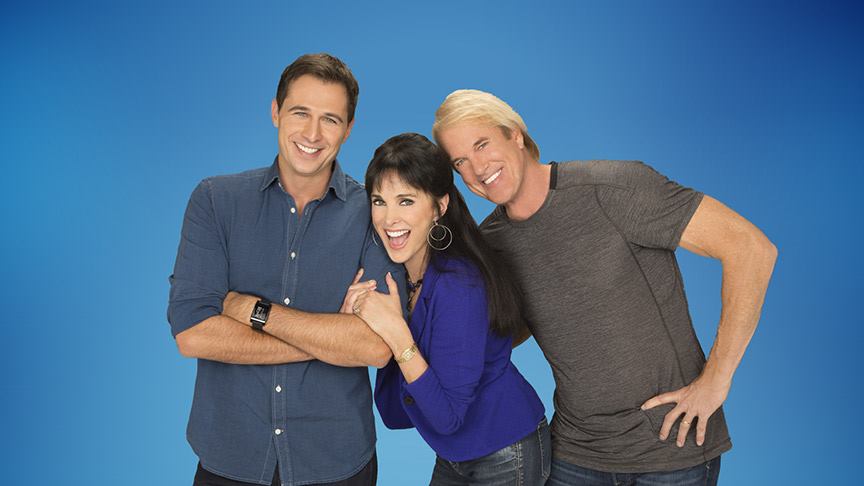
When I got the job at WCBS TV in 1976, being a newscaster at that time was challenging, but also exciting because here I am, twenty-three years old. I was a general assignment reporter and I would not be able to do that job today. It was a tremendous amount of energy, no sleep.
After about six years of that, the phone rang in the newsroom and it’s a guy named Terry O’Neill at CBS sports, and he goes, “We just took over at CBS sports. We’re trying to change things around. We’d like you to come work for us.”
And then I ended up getting hired to do gymnastics in the ‘92 and the ‘96 Olympic Games and all kinds of things, everything from Mr. Universe to downhill skiing, ski flying, figure skating, and traveled all over the world covering these events.
Success in Television and Stepping into Music
I did that for six years, and then a guy named Frank Kelly from Paramount Television in Los Angeles asked if I would come out and audition for a show called Entertainment Tonight.
I showed up for the audition with Mary Hart. Mary reads something, and then the teleprompter comes up and it’s the celebrity birthdays. So I go—at the top of my voice—all of a sudden I’m announcing a downhill skiing race. I’m going “CELEBRATING A BIRTHDAY TODAY@ PHIL COLLINS IS 52!” You know, and their audio guy’s like “Agh!”
The director comes out and he goes, “John, just take it down a little bit.” So I did, and I thought, well, I just blew that. I don’t hear anything for like six months. I say, Well, that’s over. Then I got a call from those guys saying, ”Can you come back out here?” So I fly back out to Los Angeles, I do another audition, and at the end of the audition, I walk into the president of Paramount Television’s office, Lucy Salvini, and she goes, “Hey, we’re looking for a newsier approach to Entertainment Tonight. We think you’re the guy, you only have to work half a day until 1:00 PM. And then, we will give you access to the recording studios on the lot of Paramount.”

They knew what to say to me, so I said, “Okay, I’m in.” So I took the job at Entertainment Tonight. I was there for ten years, I would finish at 1:00 PM, and then from 1:00 to 9:00 every day, I was using their recording studio. I had one in my house too, and I was recording music. And so that’s really where the music career began its start.
A Dream To Share Music Comes To Life At Red Rocks
I had written, I don’t know, maybe two albums worth of music and I thought, Wow, listen, twenty-three to twenty-five million people a night are watching this show, I should be able to get a record deal, right? Makes sense. So I sent my music to everybody. I mean, to CBS, Sony, Columbia, Virgin Records, everything. I got turn-down letters from all of them saying it’s not something that we’re interested in right now.
Back then, you were either a musician or you were a television personality. And it’s like, Oh well, what am I going to do? And there was a Sunday night and I’m sitting down watching PBS, and up comes a pledge special and it’s The Moody Blues. And they’re at a place called Red Rocks, and I’m like, Gosh, what’s that place? It’s amazing. It feels like there were 20,000 people there.
So I took this idea and I called up and made an appointment with public television. What they said was, “You don’t have a following now, you’re not touring, and you haven’t sold any records. So we can’t make that kind of an investment,” because the investment was a million dollars.
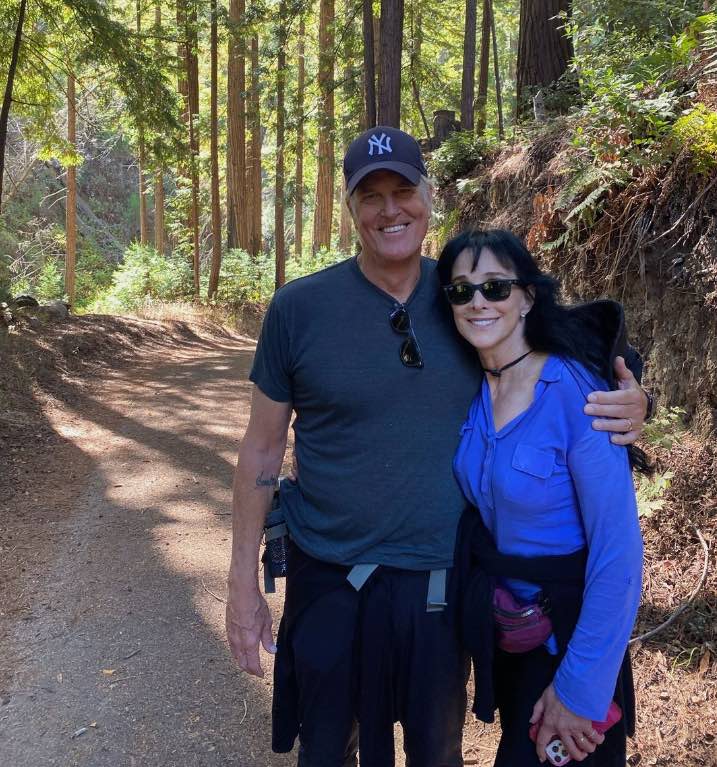
So I went to my wife, and we had been married for two years, and she was a fan of my music. And I said, “Hey, honey, this is what I would need to do to really launch my music career.” And we had some money saved up, but not that much money. She said “I’m behind you. Let’s do it.”
Six months later, we’d rehearsed with the orchestra and we gave away 7,000 tickets because nobody was coming to a John Tesh concert because they didn’t know what that was. We’re all rehearsed, the orchestra knows everything, we got the audience in there, and we start playing. And we get four songs in, and the largest rainstorm in the last ten years at Red Rocks descends on us and the orchestra players with these expensive, $10,000 instruments—cellos and violins—they run for their lives. And we’re left with just the core band. So it’s just me and my electric violin player, drums and bass and guitar. I thought I had lost everything, you know, and the audience wouldn’t leave. They’re just stomping…and what are we going to do?
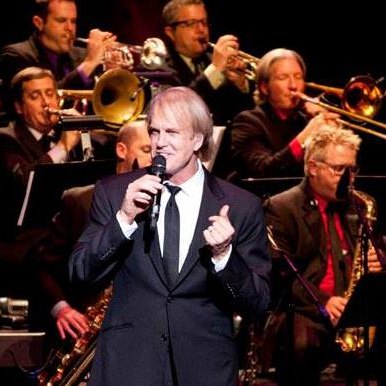
What I didn’t realize is that the audience of Red Rocks is used to this kind of a concert. They come prepared. So they’ve got all this gear on, and here we are playing and we’re soaked. I mean, there’s water coming out of my nine foot grand piano, just rushing out of it. 7,000 umbrellas going up and down like that and it was bittersweet because I knew we had lost a pile of money because it wasn’t going to be a PBS special.
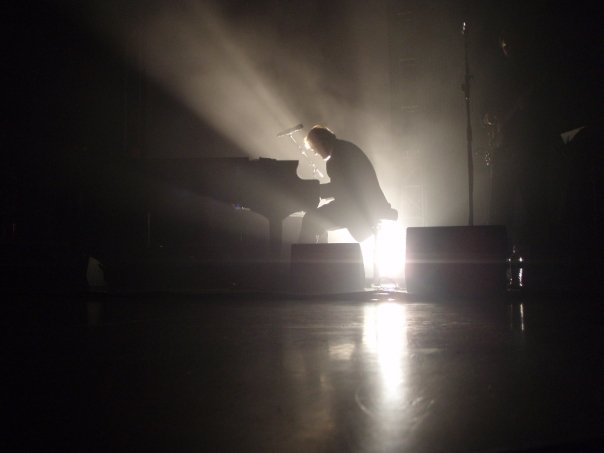
And so about six songs later, the rain just stopped like that, and then the moon came out. And then because of the change in temperature, this giant organic fog comes in and here we are. The whole audience was covered in fog and it was so beautiful. And so we finished the taping, we mixed it and then edited it together and it took about a month. I sent the VHS tape to a woman who was the head of PBS at Maryland Public Television. And she ran it at midnight, sort of without permission, and she calls me up the next day, she goes, “John, I think you’ve got something here like.” And she says it raised more money than the Three Tenors. And I’m like, Oh my gosh. She said, “I’m going to tell everybody on PBS.” She did, PBS ending up paying for it. And they ran it for three years and it raised, I don’t know, eleven million dollars for public television and started my music career.
Life May Have Hardships, But to Live is Christ
In the Bible, there was never a promise that you were instantly going to be happy, and that you were instantly going to be devoid of any of any hardships. Paul, in the last third of his life, everybody was beating him and chaining him. It was horrible for him. And what did he say? “It’s just a light affliction, to live is Christ, to die is gain.” [Philippians 1:21-26]
My common piece of advice is renew your mind. Romans 12:2, “Be transformed by the renewing of your mind.” I think what a lot of us who are investigating prayer and want to get deeper and want to understand what God wants for us, want to understand the power of prayer… I don’t think they realize that it actually takes practice. It doesn’t really come naturally to everybody. And so I had to develop a prayer life. Rick Warren, who wrote The Purpose Driven Life, talks about this as well. The best habit that we can have is to pray throughout the day, to never say amen, right? To just to keep praying.
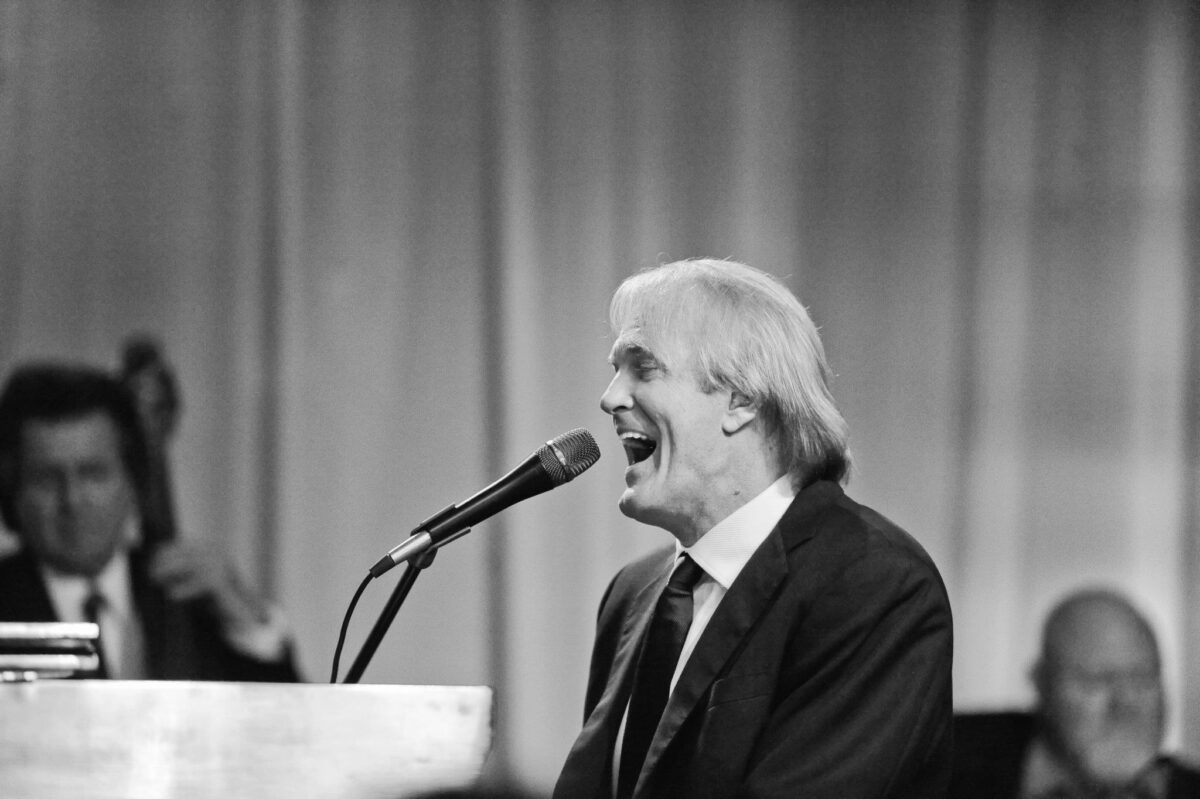
You understand that there’s really only one choice, that is to tough it out, shoulder to shoulder with God, and get through it. And when you do get through it, it’s an amazing place to be.
“You understand that there’s really only one choice, that is to tough it out, shoulder to shoulder with God, and get through it. And when you do get through it, it’s an amazing place to be.“ – John Tesh
This is from Sarah Young’s book, Jesus Listens, and the entry is November 14th:
Your plan for my life is unfolding before me. Sometimes the road I’m traveling seems blocked, or it opens up so slowly that I must reduce my pace considerably. Then, when the time is right, the way before me suddenly opens—through no effort of my own. You present to me freely, as a pure gift, what I have been longing for and working for. I’m astonished by the ease with which You operate in the world—and I glimpse Your Power and Your Glory.
While I persevere along the path You have prepared for me, I’ll depend on Your strength to sustain me. Please help me to stay alert—and to be on the lookout for miracles. Though miracles are not always visible to the naked eye, those who live by faith are able to see more clearly. Living by faith, not by sight, keeps me close to You and open to Your awesome works.
In Your glorious Name, Jesus,
Amen
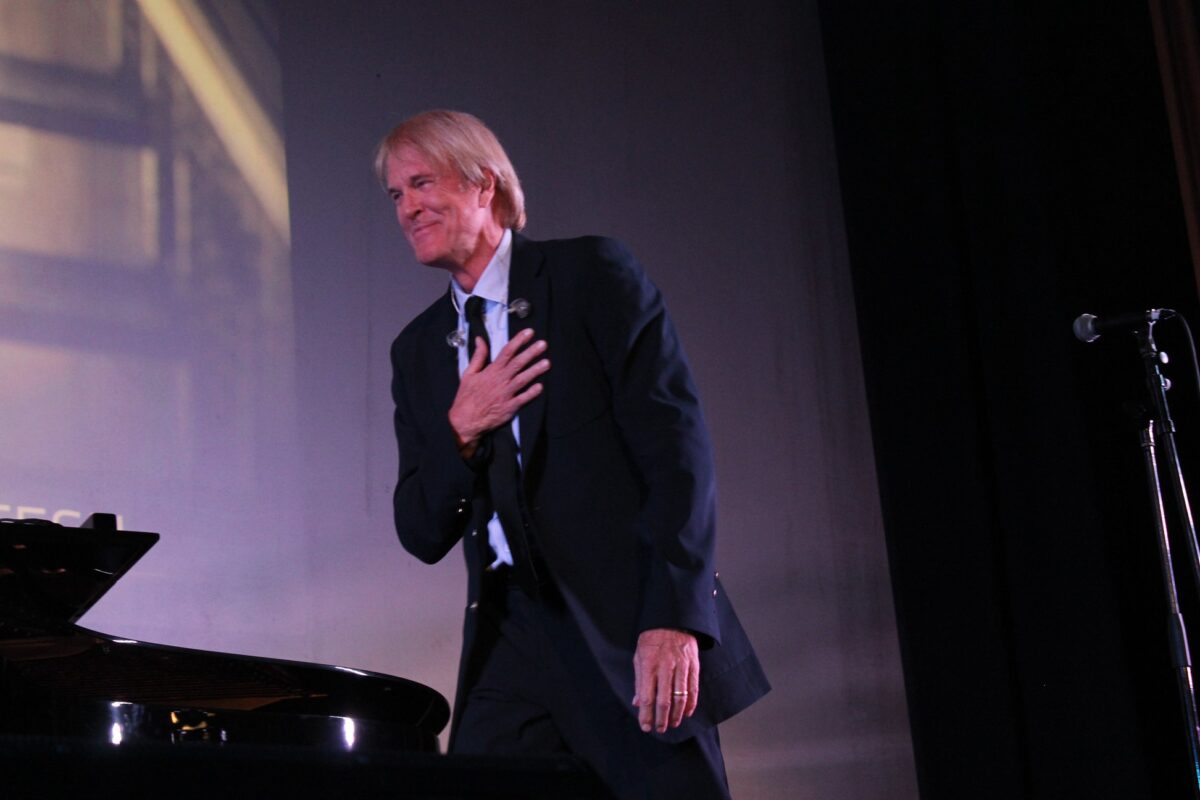
Narrator: To learn more about John Tesh, his music or to find out where his radio program airs on a station in your city, visit www.tesh.com.
If you’d like to hear more stories about looking for light in the world, check out our interview with Ainsley Earhardt.
Next week: Dr. Daniel Amen
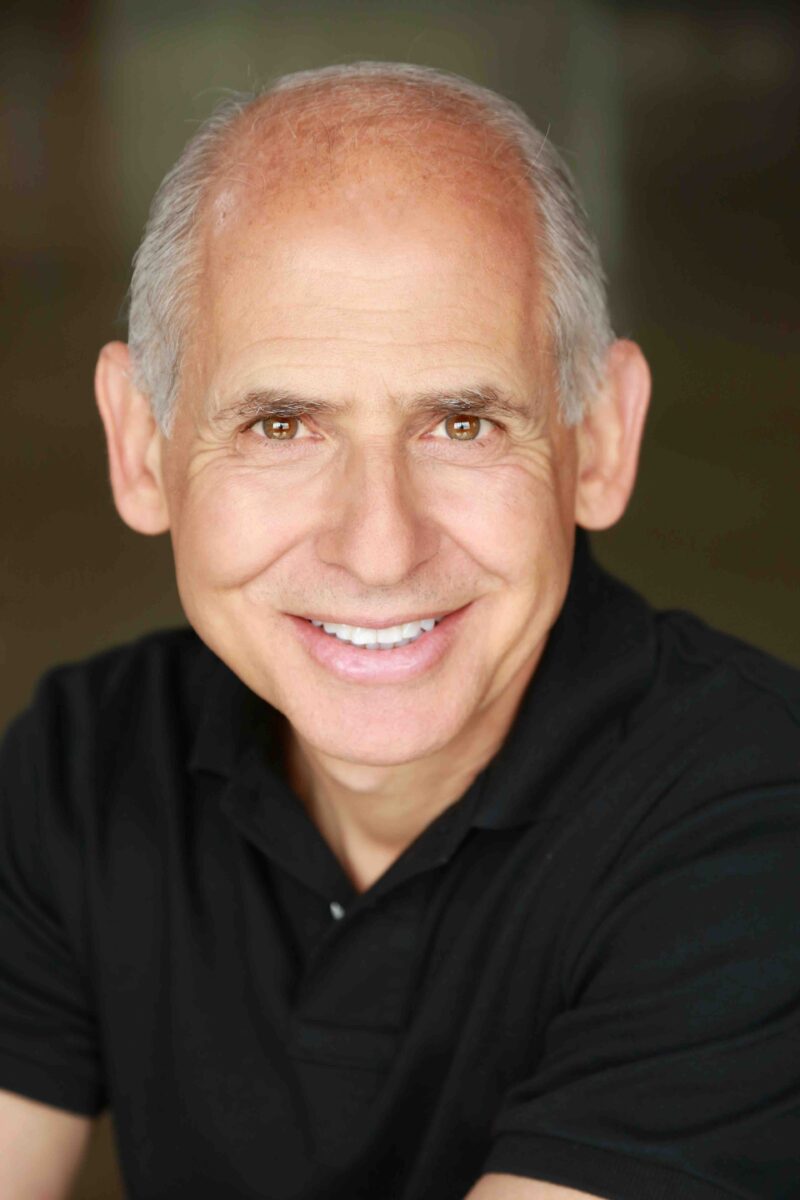
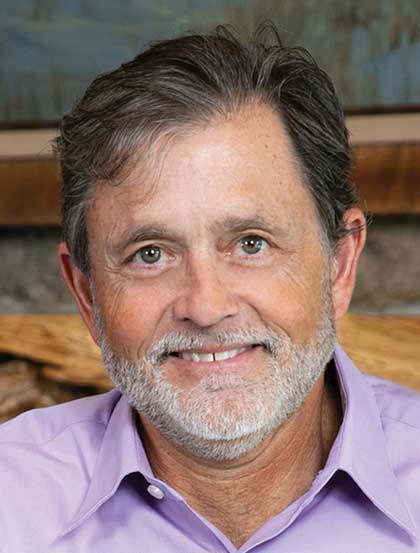
Next time on the Jesus Calling Podcast, we’ll hear from psychiatrist Dr. Daniel Amen and the CEO of the Love and Logic Institute, Dr. Charles Fay, who have studied ways to help parents raise mentally healthy children while giving them the foundations of faith.
Dr. Daniel Amen: There’s actually very good research on faith and prayer enhancing mental health. So having a regular practice where you and your children learn that you are not center of the world, but you are part of it, and that God made you for a purpose, and connecting with God on a regular basis enhances who you are.

